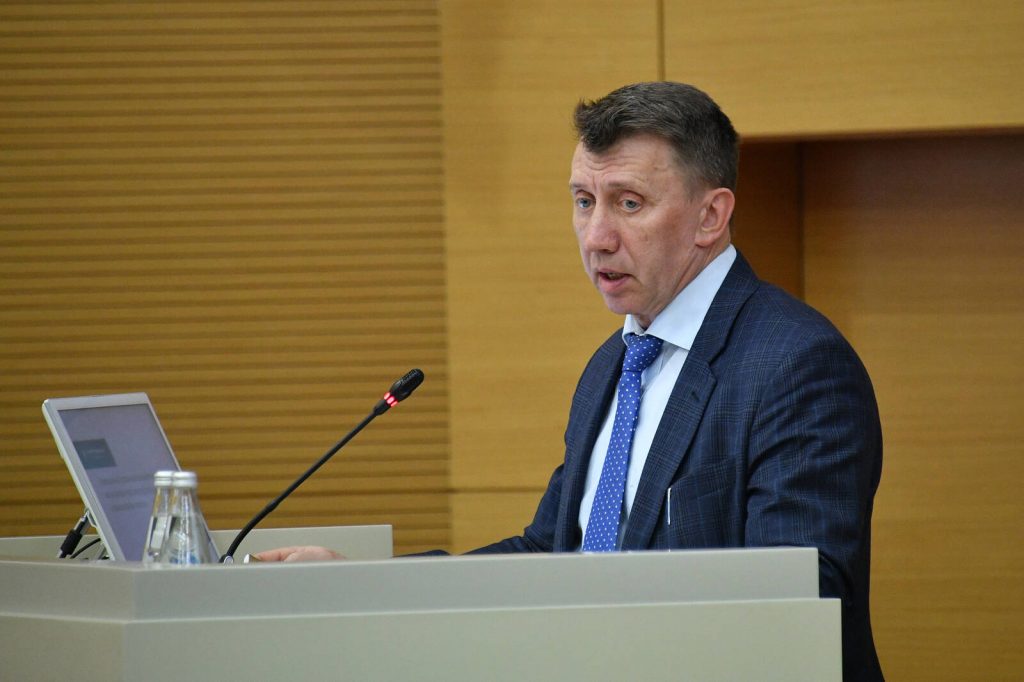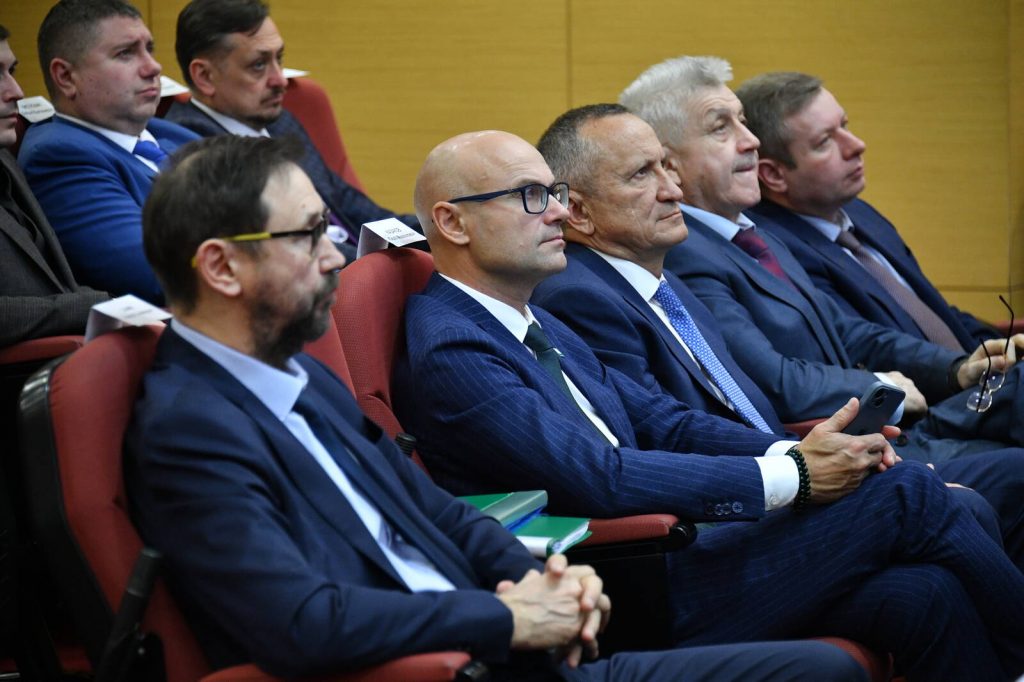Board of Directors of Tatarstan Petroleum Chemistry Investment Holding familiarized with KFU’s latest research


The meeting was headed by Rais (Governor) of Tatarstan Rustam Minnikhanov and featured Prime Minister of Tatarstan Aleksey Pesoshin.
The University was represented by Vice-Rector for Earth Sciences Danis Nurgaliev and Chief Research Associate, Professor Alexander Lamberov.
Dr Lamberov presented innovations in heterogeneous catalysts, plasmochemical destruction of medical waste, utilization of dangerous waste, composite water reservoirs, and cybersecurity for machine manufacturing and energy sector.
Dr Lamberov noted that catalysts determine the quality and cost of products and are the high-tech foundation of the hydrocarbon industry. 80% of technology in industrial chemistry is based on catalysts.
The Laboratory of Sorption and Catalytic Processes has been working at KFU since 2000, said the scientist.
“The main activity of the laboratory is the development and implementation of catalysts for industrial chemistry, petrochemistry and oil refining. Our laboratory is equipped with the most modern scientific equipment for the development of catalysts and their production technology. The laboratory has a pilot shop with high-performance equipment, which allows to carry out large-scale transfer of development from the laboratory sample to the industrial one and to develop small batches of catalysts up to 10-15 tons,” said he.
The Lab’s aluminum oxide-based catalyst work at Nizhekamsneftekhim (subsidiary of Sibur), Moscow Oil Refinery, Omsk Oil Refinery, and other leading companies. As R&D went on, a lack of aluminum oxide was found to be a bottleneck for production.
“About 80 percent of catalysts have aluminum oxide in their composition, the content of which ranges from 70 to 100 percent. Aluminum oxide, especially in petrochemistry and partially in oil refining, is subject to rather strict requirements for textural and strength properties, including the content of impurity elements – iron, sodium, silicon. But such a high-purity product is quite scarce in our country. Only one manufacturer has aluminum oxide that meets the requirements to a certain extent, but its capacity does not allow it to meet the growing demand for this product,” added Dr Lamberov.
He proposed opening such production on the premises of KFU’s catalyst plant.
“In 2023, the university administration allocated our laboratory a building with an area of about 2 thousand square meters for large-scale transfer and piloting of catalysts, purchased some industrial equipment and paid for the manufacture of a pilot plant to scale up the technology of high-purity aluminum oxide production. To date, R&D is being completed, with pilot plant development work scheduled for completion in late 2024, and issuance of pre-design documentation for the plant with a capacity of one thousand tons annually is scheduled for 2025,” shared the Professor.

